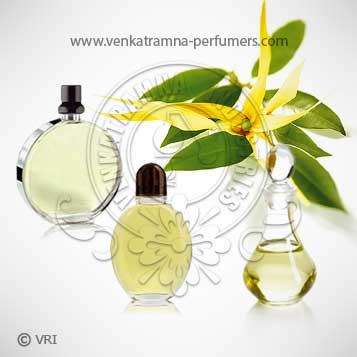
| Botanical Name | Cananga odorata |
| Common Name | Ylang-ylang, ilang-ilang, kenanga, cananga tree, fragrant cananga, Macassar-oil plant. |
| Country of Origin | France |
| Solubility | Soluble in alcohol & oil, insoluble in water |
| Specific Gravity | 0.930 – 0.961 @ 20°C |
| Optical Rotation | (-45.0) – (-15.0) @ 20°C |
| Refrective Index | 1.500 – 1.510 @ 20°C |
| PlantPart | Flowers |
| Bland With | Bergamot, lavender, grapefruit, sandalwood. |
| CAS No | 8006-81-3 |
| Flash Point | 89 °C |
| Extraction Method | Supercritical CO2 Extraction |
Ylang - Ylang is extracted form Cananga odorata and is valued for its perfumery base. The plant ylang-ylang vine (also known as climbing ylang-ylang) are woody, evergreen climbing plants. The essential oil is extracted from the flower part of the plant and fins extensive usage in aromatherapy based applications.
In Indonesia, Ylang ylang flower petals are strewn upon the bed of newlywed couples. Ylang ylang was a popular ingredient of hair preparations in Europe and was known as Macassar oil. The word anti-macassar originated from this, since an anti-maccasar was used to keep hair oil from staining upholstered furniture
Color : Pale to golden yellow clear liquid with Characteristic sweet exotic floral odor,
Aroma : Sweet, exotic, floral scent
linalool, caryophyllene, geranyl acetate, p-cresyl methyl ether, benzyl acetate, methyl benzoate, benzyl benzoate, other sesquiterpenes.
Ylang-ylang oil has euphoric & sedative effect on nervous system and helps to overcome anxiety, shock, tension, fear & panic. Its aphrodisiac qualities also make it useful for impotence and frigidity bodily disorders. It is also particularly useful with cases of rapid breathing & rapid heartbeat, where it helps in reducing high blood pressure. Further, it is also useful for intestinal infections.It also has stimulating effect on scalp and helps in promoting more luxurious hair growth.